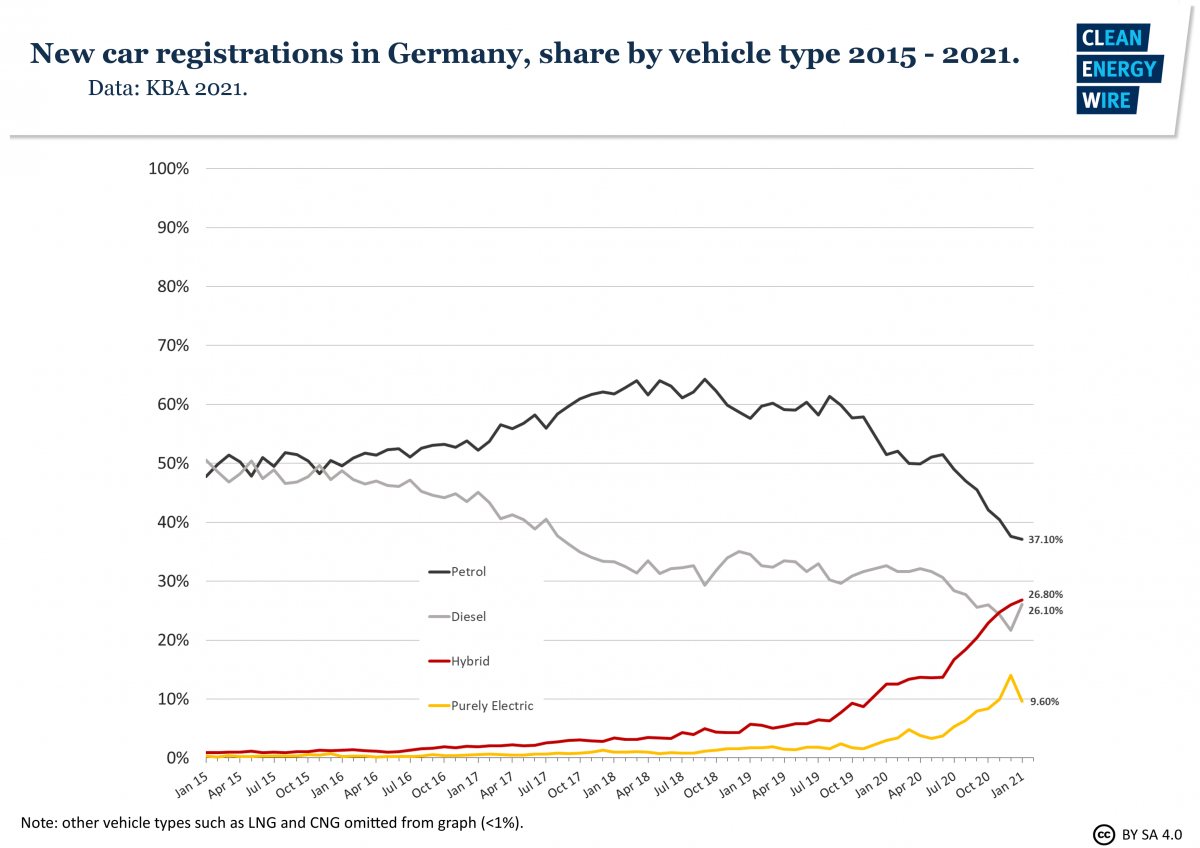German carmakers double e-car and plug-in hybrid production in 2020
German carmakers doubled their global production of battery-electric and plug-in hybrid vehicles last year, according to car industry association VDA. "In 2020, more than a quarter of all electric passenger cars produced worldwide came off the assembly lines of German manufacturers," the lobby group said. The country's carmakers produced 866,000 pure electric and plug-in hybrid cars, an increase of 112 percent. "At 428,000 units (+121 percent), about half of these were produced in Germany, of which 62 percent were exported. For purely battery electric vehicles (BEV), the export rate was as high as 68 percent," VDA said.
In January, registrations of new battery-electric cars increased by almost 120 percent year-on-year to 16,315 units in Germany, reaching a share of 9.6 percent, the country's Motor Transport Authority (KBA) said. This represents a decrease compared to December, when their share had soared to 14 percent (see graph). Some carmakers appear to have pushed registrations of low-emission models at the end of the year in order to stay within the EU's CO2 fleet emission limits. According to sustainable transport NGO The International Council on Clean Transportation (ICCT), Daimler's electric vehicle share shot up to 46 percent in December, compared to 21 percent for the full year, for example.
The number of newly registered petrol cars decreased by half compared to the same month last year, to a share of 37.1 percent. Diesel registrations fell 45 percent year-on-year to a share of 26.1 percent. Hybrid registrations increased nearly 50 percent to 45,449 vehicles, a share of 26.8 percent, thereof 20,588 plug-in hybrids (a 12.1 percent share). Average CO2 emission fell 17 percent to 125.9 g/km. Total registrations dropped by almost a third to 169.754 in the first month of 2021. Car industry association VDA said this was due to lockdown restrictions during the pandemic, and a rise of the value added tax at the start of the year, which had inflated registrations in December. Germany had lowered its VAT rate for six months from 19 to 16 percent to stimulate the economy.
The take-up of electric vehicles has been slow in Germany compared to many other markets. But thanks to new government incentives, registrations have picked up sharply in recent months. In 2020, the number of newly registered e-cars tripled.


